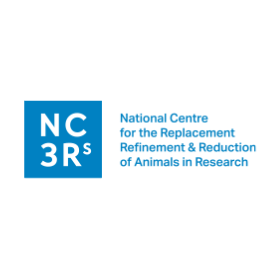All the events here are relevant to people working in dementia research. If you would like to add your own you can submit an event

- This event has passed.
Creating the right environment for animal care
07/06/2023 @ 12:00 pm - 1:15 pm

A new webinar series from a cross-European group of 3Rs centres will explore the topic of culture of care. Expert speakers will cover putting a culture of care into practice in different research environments, the issue of compassion fatigue as well as practical advice on how to measure impact and progress.
The series is aimed at animal care staff at all levels, though will be of interest to anyone working day-to-day with research animals. It is a chance to hear from experts from across the field, to pose questions and to be part of wider discussion.
Accompanying case studies
The 3Rs centres have produced a series of case studies to go alongside this webinar series. These will be introduced at the first session and will be available to download from 7 June. We encourage animal care staff to use these to consider various scenarios around the topic of culture of care in their own time, for example as part of a team meeting.
Format and registration
Each webinar will begin at 12.00 (BST) and run for just over one hour. There willCa be a chance to ask questions during each of the webinars, and there will be a panel discussion at the end of the third and final webinar.
All webinars are free to attend, but we ask that you register in advance
Session 1: 7 June: 12.00 – 13.15 (BST) / An introduction to Culture of Care
Sally Robinson, Cancer Research UK, Manchester Institute, UK
Culture of Care is a term we may use or hear often in relation to animal research. But why is this important and what is it? The use of animals in research is an area where there are often polarised views within society, and it can be an emotive topic and an emotional burden for staff who work with animals. A positive Culture of Care leads to enhanced scientific quality from the animal research conducted, to better animal welfare and to staff who feel supported, engaged, and respected for their contributions to animal research and where there is the ability to challenge and strive for improvement. Within a positive Culture of Care compliance risks are reduced, and staff feel able to talk about their role in animal research in a positive way. For all these reasons a positive Culture of Care is essential.
The presentation will set the context of the term Culture of Care, describe what it is, and provide some examples of common themes that emerge in relation to Culture of Care.
A positive Culture of Care should never be taken for granted, in the climate of research pressure there are always things that can be improved, and ways that staff can feedback in an inclusive and open way.
How to measure Culture of Care / Thomas Bertelsen, Novo Nordisk, Denmark
Every user-establishment has its unique Culture of Care which requires individual attention to address relevant challenges and issues. Approaches on how to work with and assess Culture of Care has recently been published (Turkménian O. et al, 2023; Bertelsen T. and Øvlisen K. 2021; Robinson S. et al, 2019).
This presentation describes a comprehensive survey tool which provides a means to describe what the Culture of Care in a user establishment can look like. The survey tool is one of the elements that can contribute to the overall picture of the culture in the user establishment. It addresses one of three relevant elements of making Culture of Care functional and effective – the culture; the other two being the desired outcomes and the structures that support and connect these two elements. The Culture of Care can be assessed in terms of ‘what does it look like’. The outcomes – in terms of ‘what does it achieve’ – can be measured by using Key Performance Indicators (KPIs) to assess its functionality and efficiency. The supporting structures are the different tools that the AWB identify and deploy to transform culture into achievements.
The survey tool offers a multilevel and comprehensive view of different subcultures, presenting details on mindset and behaviour of the employees and the different relations within the culture, thus enabling the initiation of improvement projects if required. The tool addresses essential elements of a co-operative culture in terms of what we think, what we do and how we work together.
Session 2: 14 June: 12.00 – 13.15 (BST) / On the Responsibility of Responsibility
Stephanie Krämer, ICAR3R, Justus Liebig University Gießen, Germany
The EU Directive 2010/631 states in its Article 40 the designation of persons who will assume ‘responsibility’. Who is allowed to take responsibility? This question is easy to answer. Usually, it is sufficient to fulfill formal criteria, such as proven expertise in handling the respective laboratory animal species. But what does this responsibility mean for the care of animals in concrete terms? This question is much more complex and is worth to be analyzed on several levels.
At a philosophical level, the concept of responsibility can be seen as “an essential relationship of man to society, to nature and to himself’”. This definition illustrates the ambivalence that is also found in the meaning of responsibility in animal experimentation. On the one hand, responsibility is something tangible with practical relevance (see Art. 40, RL 2010/63), on the other hand, responsibility can become an expression of conscience and thus something soft and felt. Hence, the way in which responsibility is assumed depends to a large extent on the person in charge. Ideally, the perceived responsibility (sense of duty, self-commitment, and commitment to laboratory animals) exceeds the assigned responsibility.
The ‘Culture of Care’ approach improves the understanding of responsibility, as it reflects on the whole context, i.e. the roles of all actors involved in animal experimentation, including the laboratory animals used. In this sense, the ‘Culture of Care’ approach is based on the respectful treatment of all living beings. Even going beyond asking whether research results can be achieved by other approaches (waive the use of sentient beings) than animal experimentation3. It is therefore essential for all staff involved not to see the responsibility as a mere legal obligation, but to assume moral responsibility.
- Directive 2010/63/EU of the European parliament and of the council of 22 September 2010 (https://eur-lex.europa.eu/LexUriServ/LexUriServ.do?uri=OJ:L:2010:276:0033:0079:En:PDF)
- Europäische Enzyklopädie zu Philosophie und Wissenschaften. Hg. Hans Jörg Sandkühler. Bd. 4. R – Z. Hamburg: Meiner, 1990, S. 690.
- UKE Hamburg. Culture of Care in der Forschungstierhaltung am UKE (https://www.uke.de/organisationsstruktur/medizinischefakult%C3%A4t/forschungstierhaltung/tierschutz/culture-of-care/index.html)
Establishing a Culture of Care in an industrial environment / Lotte Martoft (Industry consultant), Sweden
Lotte Martoft is a veterinarian and has a PhD in veterinary neurophysiology. For the past 20 years, she has worked in science and management roles in the pharmaceutical industry and laboratory animal sciences, for many years as the executive director of AstraZeneca’s global animal facilities. She is also a board member of the Swedish National Committee for the Protection of Animals used for Scientific Purposes. Lotte Martoft is passionate about the concept of Culture of Care and believe that animal welfare, the 3Rs, the quality of the science, and staff wellbeing are inseparable unities that should be treated as such to obtain effective improvements in animal research. Lotte will be giving a presentation about the practical implementation of Culture of Care based on her experience from the industrial setting. She will also discuss critical mindset changes required to fully underpin the Culture of Care at institutional and workplace level.
Session 3: 21 June: 12.00 – 13.15 (BST) / Avoiding compassion fatigue in the animal facility
Megan LaFollette, 3RsC, USA
Caring for research animals can be very meaningful, but also stressful. Therefore, promoting a good professional quality of life can be beneficial for both technicians and the animals they care for. In this webinar, we will discuss what compassion fatigue (and satisfaction) are, why they common in our field, and how to promote resiliency as both an individual and institution.
Dr. Megan LaFollette works with The North American 3Rs Collaborative to advance science, innovation, and research animal welfare. She has her PhD in Animal Behavior & Well-Being from Purdue University, where she also received a Master of Science in Animal Welfare. Her primary interests lie at the intersection of human-animal interaction and animal welfare, especially in practical refinements for laboratory animals.
The Swiss Culture of Care Charter / Alessandra Bergadano, University of Bern, Switzerland
Culture of Care (CoC) in laboratory animal science is the commitment of an organization to improve animal welfare, the application of the 3Rs and scientific quality by implementing a caring and respectful attitude towards the animals bred or used for scientific procedures, its staff and promoting transparency and visibility about its research activities.
The establishment of a CoC program within the organization signifies the responsibility to be proactive and strive to go beyond the legal requirements and obligations and provides all stakeholders with a feeling of pride, that they are doing their job in the right way and that they are doing something good.
The Swiss Charter is meant to give practical suggestions on steps and actions to implement the CoC actively in the daily research activities. It is an engagement to bind to a philosophy, which in the present case is rooted in the 3Rs principle. Joining the CoC Charta is an official recognition that a given Institution will do its best to apply 3Rs principles beyond the legal equirements. The degree with which the Institutions will apply the concepts of the Charta depends on how much resources are allocated to this endeavor and is voluntary.
If each of the key players – animal caretakers, veterinarians, facility managers, scientists, animal welfare officers, leaders – implement one of these actions daily, research institutions would positively impact the welfare of the animals, their research but also the satisfaction of their employees and the trust of the public.
The Swiss CoC charter should help to make excellence in animal welfare, human resources and science converge.


